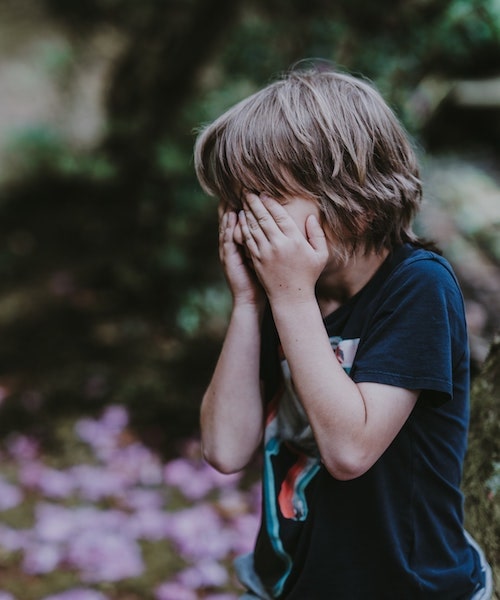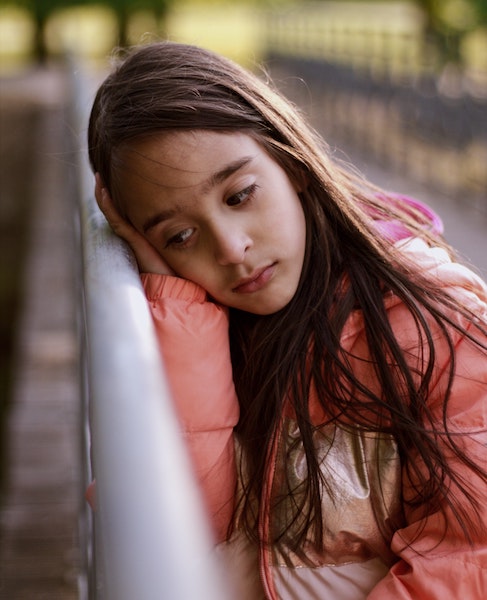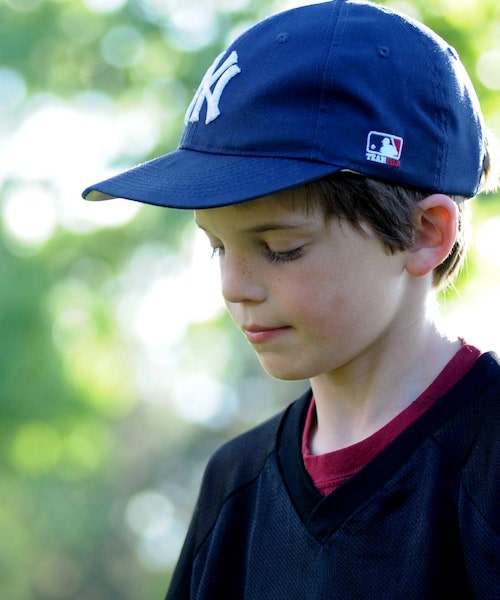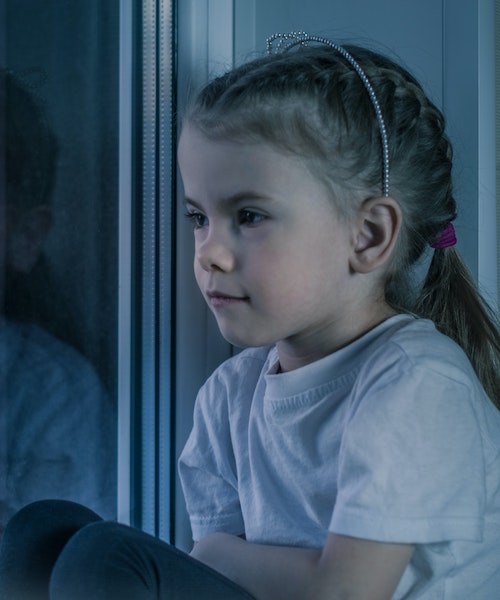Treatment for OCD in Children
Help Your Child Thrive. Schedule an appointment today.
Is Your Child Or Toddler Showing Potential Signs of Obsessive-Compulsive Disorder (OCD)?
Is your child struggling with repetitive thoughts or doubts that are causing them fear and anxiety? Do they have a preoccupation with germs or dirt to the extent that they wash their hands excessively or avoid touching certain surfaces? Are they easily agitated if they do not follow the rules and rituals that OCD demands of them?
Perhaps your child is having trouble paying attention at school because they’re constantly focused on their thoughts. Or maybe they are so stressed out by having to regulate their behavior that they often have headaches or stomach issues that prevent them from going to school.

How Does OCD Affect Your Child’s Life?
Obsessive-Compulsive Disorder (OCD) can impact not only adults but also kids very early in their childhood years. When children begin displaying signs of OCD, it may affect every area of their life.
Early Signs of OCD
They may become obsessed with details and the need to know or remember everything. Repetitive behaviors, such as checking/re-checking, counting/recounting, or handwashing may be disrupting their life or forcing you to schedule things around their compulsions. Or maybe their sense of self-worth is suffering because they have trouble socializing at school, making friends, or participating in activities.
OCD can even impact children in their physical health. For instance, severe food adversities may be negatively affecting your child’s diet or eating habits. Their skin may even turn raw or rough from washing or bathing excessively.
Parents only want the best for their children, but they don’t always have the tools needed to intervene on their own. However, with the help of OCD treatment for children at Courageous Kids Counseling, you can gain the awareness and skills needed to help your child manage symptoms and overcome OCD.

Childhood OCD Is More Common Than You Think
Most people are surprised to hear that OCD is highly prevalent in kids. According to The American Academy of Child & Adolescent Psychiatry, 1 out of every 200 children is affected by OCD in their life.
As people are becoming more hypervigilant about health and safety, children may develop unhelpful thought patterns. These patterns may then become a gateway for more obsessive thinking and compulsive behaviors later on in life.
Causes of Childhood OCD Are Widely Varied
There are a number of reasons why OCD symptoms begin manifesting in children. Besides genetics, some other causes could be because they are experiencing more anxiety from conflict at home, life transitions, or traumatic incidents.
With the best of intentions, you may have told or heard someone tell your child, “Stop behaving like that!. However, for anyone suffering from OCD, they need strategies to stop the unwanted behavior. The problem with saying, “stop,” is that they can’t just make the obsessions go away. Their behaviors are influenced and dictated by obsessive thoughts that ruminate in their mind. Forcing a child to resist these behaviors can actually strengthen their negative thought patterns, which becomes more influential over the child.
OCD has a way of consuming people’s lives—children especially. Fortunately, through treatment for OCD in children, your young one can learn the necessary strategies to stop these unwanted behaviors so they can lead a happier life.

OCD Treatment For Children Helps Them Succeed In Life
Dealing with OCD can be debilitating for children. Child OCD therapy services provide a safe place where children can work on overcoming their obsessive thoughts and compulsive behaviors. It teaches them new strategies to interrupt their behavior patterns in a way that is healthy, productive, and self-affirming.
OCD can be an isolating experience for many children, which leads them to believe that they are the only ones who deal with it. However, therapy helps children to see that a lot of other kids struggle with unwanted behaviors also.
Our Approach To Treatment For OCD In Children
We understand that OCD is overwhelming enough for children, especially when it requires working in a new environment. That’s why we believe that it’s better to take things one step at a time and begin by validating and normalizing their experience first. Instead of changing working to correct their behaviors immediately, we work to establish a relationship with them and earn their trust. We want to empower your child to know that we are here to help them and change is possible.
We will begin the therapy process with a free consultation to discuss the behaviors and thoughts that prevent your child from living a fulfilling life. During this first session, we will ask you to fill out an intake form that will go into more detail about your child and their history.
Though, in subsequent child OCD treatment sessions, we may continue talking about what is contributing to your child’s obsessive thoughts and behaviors, we place more emphasis on interrupting unhelpful thoughts and behavior patterns. We do this through a few different therapeutic methods.
One method we use is Cognitive Behavioral Therapy, which focuses on how thoughts, emotions, and behaviors influence and feed off one another. We also use exposure therapy, where we safely walk them through situations where they may feel the need to complete their impulses. Using their imagination, we will collaborate with your child to use what they learned with us in real-time to interrupt their behaviors.
At times, we will even suggest keeping a video journal or writing about experiences so children can see how they modified their behaviors between child OCD treatment sessions.
The Parent’s Role In Childhood OCD Treatment
Helping kids learn how to cope with OCD is a collaborative experience in counseling. Parents are strongly encouraged to be part of this process by providing information and learning strategies that help their children. Parents also need to help keep their children accountable for practicing altered behaviors between sessions. When a child resists their compulsions, it can be helpful for parents to use positive reinforcement techniques, which we can teach in our sessions together.
In some cases, many parents believe their children may be exhibiting signs of OCD after an illness. Known as PANDAS, OCD behaviors occur after a child recovers from a strep throat infection. If you believe this may be the situation for your child, please let us know so we can treat their behaviors because of PANDAS.
In the past, you may have felt like there was no light at the end of the tunnel. OCD treatment for children is a process that takes time, but it provides a remarkable transformation in their life.

You May Still Have Questions About Treatment For OCD In Children…
Does childhood OCD go away?
OCD is highly treatable, especially in children—whose brains are still highly malleable and teachable. However, anxiety is usually at the root of most OCD issues, so it may be possible that stress could trigger some symptoms in the future. Fortunately, by learning how to manage anxiety, your child can respond to stress effectively. In that way, treating OCD in children early will help them lead more fulfilling lives later on.
Their OCD is so bad I’m not sure what can be done at this point.
OCD is a debilitating condition, but with support and knowledge, your child absolutely can start to feel better. In OCD treatment for kids, will help your child learn helpful behaviors that relieve their anxiety so they no longer have to rely on faulty coping mechanisms that disrupt their life. In turn, they can feel calmer, secure, and more confident in who they are.
What if my child doesn’t practice the strategies they learn in therapy?
Change is hard, so we start slowly to provide education on how anxiety and OCD work. It’s a process, but we will gradually introduce strategies to help your child find long-lasting relief. Our best advice is to have patience as your child works to unlearn unhelpful behaviors. We can always revisit and modify our OCD treatment plans for your child.

